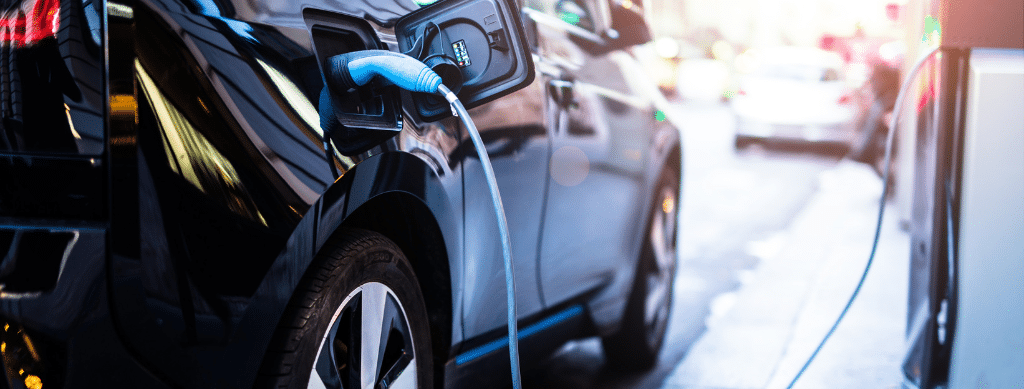Do you own or are you looking to buy a hybrid or Plug-in Electric Vehicle (PEV)? Own a Tesla Model 3 or a Toyota Prius? How about a Mustang Mach-E, Chevy Bolt, or Hyundai Kona? If you’re already driving a plug-in electric vehicle, you probably know much of what follows. If you’re new to PEVs and considering one, this information can help you decide.
What is a PEV?
PEV stands for “Plug-in Electric Vehicle.” Plug-in electric vehicles are designed to be more environmentally friendly than traditional gasoline-powered cars. There are two primary types:
- Battery Electric Vehicles (BEVs): BEVs run entirely on electricity with a rechargeable battery that provides the driving power. They rely solely on charging stations, such as Level 1 and Level 2 hybrid chargers, and have no internal combustion engine. Popular examples include the Tesla Model 3, Nissan Leaf, and Chevy Bolt.
- Plug-in Hybrid Electric Vehicles (PHEVs): PHEVs combine a rechargeable electric battery with a traditional gasoline engine. This allows drivers to use the electric motor for shorter trips and switch to the gasoline engine for longer distances, offering flexibility in fuel options. Notable models include the Toyota Prius Prime, Ford Escape PHEV, and BMW 330e.
Understanding the Different Levels of Charging
If you’re researching a plug-in electric vehicle, information about the different levels of charging can be beneficial. Most drivers are familiar with various grades of gasoline like regular, plus, and premium. But what about electric vehicle chargers? Are there different “grades?”
Chargers are classified into “levels”: Level 1, Level 2, and DC Fast Charger, with Level 1 being regular, Level 2 the plus, and the DC Fast Charger the premium option.
Level 1 Charging
The main difference between Level 1 and Level 2 PEV charging is the charging speed. Level 1 charging uses a dedicated outlet (110-120v) in your home and charges at a rate of 2 to 5 miles of range with one hour of charging. These outlets must be on a dedicated circuit, preferably rated for 20 amps. Using a GFCI outlet with an outlet cover is required for outdoor use or anywhere the outlet could get wet.
If an electrical outlet that does not meet these requirements is used for PEV charging, there can be sparks, damage, or injury. An electrician can inspect an existing outlet to determine if it meets these specifications or install a new outlet on a dedicated circuit. If you were parked for the night in your garage or driveway for 12 hours, you would replenish between 24 and 60 miles of range in that time.
Since more than 90 percent of people in the United States commute less than 35 miles each way to work, Level 1 charging could probably replenish the battery capacity used to travel to work and back. If your commute is further than that, you might want to bring your cord to work and have access to an outlet if your employer does not have a charging station set up.
A major benefit to Level 1 charging is the lower electricity costs compared to high power charging options. Assuming drivers have a commute of less than 25 miles one-way, the potential electricity consumed by one Level 1 charging station could range from 867–2,167 kWh/year. If your electricity rate is 10.59 cents per kilowatt-hour, that could result in an annual cost of between $92–$229.
Most PEVs come with a cord that has a standard three-prong household plug on one end that plugs into a Level 1 outlet (110–120 V) and on the other end has a standard connector that plugs into the vehicle.
The other big difference between level 1 and level 2 charging stations is the cost of installation. A level 1 charging station installation can cost between $1,500 and $2,500. It depends on how far away your electric panel is from your preferred parking area, whether a trench needs to be dug as well as how much the electrician charges per hour. The charging stations themselves run between $700 and $1,200, depending on the model.
Level 2 Charging
A level 2 charging station can charge a PEV at a rate of 10 to 20 miles of range in one hour of charge. That’s a big difference!
The other big difference is the circuit required in your home to accommodate the level 2 charger. These require a 240-volt circuit (think dryer plug or welder machine). The installation is more costly for these because of the amount of power that is drawn. You may have to install an electrical sub-panel to your existing panel if there are no more breakers available on your main panel. These installations can run from $1,500 to $3,000 or more depending on the same factors as a level 1 charger.
There are most likely rebates and incentives available for these installations from your utility provider. You may have to undergo an energy audit, but the rebate might be well worth it.
DC Fast Chargers
DC Fast Chargers are typically what you see at grocery stores, shopping malls, and rest areas. The cost with installation on those is north of $30,000 but can charge your vehicle to 90 percent, sometimes in as little as 20 or 30 minutes.
Comprehensive Hybrid & Plugin Electric Vehicle Maintenance in Franklin, MA
Whether you choose to drive a PEV, a hybrid vehicle (a combination of electric and battery-powered), or a gas-powered car or truck, Advanced European Repair can help maintain whichever you choose. Our technicians are required to attend a minimum of 10 hours of training per quarter on all makes and models, so we are continually training with the newest technology (this link is to the training center for some of our PEV/hybrid training: Fix Hybrid).
If you drive a plug-in hybrid electric vehicle or a plug-in electric vehicle, we have a Level 2 charging station at our facility and many hours of specialized training to repair and maintain those vehicles. All our technicians have undergone rigorous training for both hybrids and PEVs, and we even have a certified Tesla technician!
Trust Advanced European Repair for PEV and Hybrid Maintenance and Repair
Once you make the leap to a plug-in hybrid electric vehicle or a plug-in electric vehicle, you can rest assured knowing that Advanced European Repair has the expertise, training, and experience to provide top-tier service and maintenance. We’re here to be your dealership alternative for hybrid chargers and plug-in charging stations near you!



